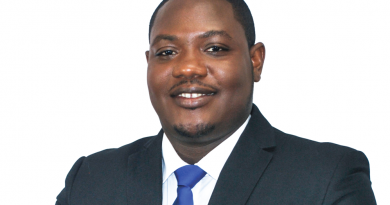Gov’t mulls how to phase in ABST hike, while accountant says ‘there will be pain for everybody’
The Browne Administration is looking at a phased approach to
implementing a hike in the Antigua and Barbuda Sales Tax (ABST) –
from 15 to 17 percent – as part of what it calls the stabilization of
the economy.
During the post-Cabinet briefing on Thursday, November 23,
Information Minister Melford Nicholas said the Executive and
Ministry of Finance officials had met the day before and considered
various measures to close the revenue gap.
Nicholas says the Cabinet still believes the ABST increase is
appropriate, and Finance officials have been asked to look at how
this tax increase can be phased.
More information will be revealed over the next two weeks, he says,
and when the prime minister makes his 2024 Budget Presentation
on December 15.
The minister says the Cabinet is aware of the public’s concern about
the effects of the increase on inflation.
However, he claims, the Cabinet expects there will be little to no
impact on the cost of basic food items, since the Government intends
to protect the poor and vulnerable.
All the food items that were zero-rated – and which were expanded
during the COVID-19 pandemic – will remain untouched, Nicholas
says, while the increase will apply only to other consumer goods.
Some residents tell REAL News they are deeply unhappy with the
Browne Administration’s mode of operation.
They note that, only a week ago, Government spokesman Lionel
“Max” Hurst announced there would be consultations with the
people ahead of a decision, as was advocated by the United
Progressive Party.
“A lie! Just another lie!” is how a small contractor describes Hurst’s
assurance.
He is reminding Minister Nicholas that the 2 percent hike “is not just
about food, because man does not live by bread alone!”
However, he notes, the cost of food will increase because the other
inputs – such as packaging and transportation – will go up.
In his own case, he points out that the cost of building materials will
also increase, making new construction and home repairs more
expensive for his clients – some of whom have received estimates
and are applying for loans already.
An accountant tells our Newsroom that buying food might not be the
issue for some, but the cost of seeing a doctor; consulting a lawyer;
or engaging a surveyor, for example, will become more expensive, as
these are all taxable services.
“The 2 percent increase, when applied to large-scale transactions –
like importing merchandise – will translate to a lot of money,” she
says.
“There will be pain for everybody, except the Government.”
Meanwhile, there are other tax measures to be implemented in 2024.
Reportedly, the Financial Secretary and other technicians will
be leading public discussions and education campaigns on these and
on how the Government intends to collect.




